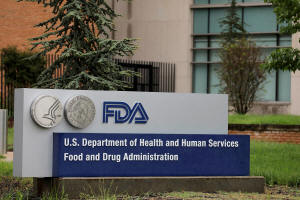US FDA seeks 'boxed warning' for CAR-T cancer therapies
 Send a link to a friend
Send a link to a friend
 [January 23, 2024]
By Gnaneshwar Rajan and Gursimran Mehar [January 23, 2024]
By Gnaneshwar Rajan and Gursimran Mehar
(Reuters) -The U.S. health regulator said on Monday companies will be
required to add a serious warning on the prescribing information for
cancer therapies known as CAR-T, made by Gilead Sciences, Johnson &
Johnson, Novartis and others.
The other cancer therapies include Bristol Myers Squibb's Breyanzi and
its partnered therapy, Abecma, with 2seventy bio, J&J unit Janssen and
Legend Biotech's Carvykti, Novartis AG's Kymriah, and Gilead unit Kite's
Tecartus and Yescarta.
Novartis said it will update the prescribing information for its CAR-T
cell therapy Kymriah to include instances of T-cell malignancies
occurring after treatment with Kymriah.
The Swiss drugmaker said, to date, it has not identified a causal
relationship between Kymriah and secondary T-cell malignancies and
remains confident in the therapy's profile.
Novartis shares were trading 1.5% lower premarket on Tuesday, at 92.91
Swiss francs. The shares traded at a record high of around 94.50 francs
on Monday, according to LSEG data.
Last November, the U.S Food and Drug Administration said it had received
reports of patients developing a type of T-cell blood cancer after being
treated with CAR-T therapies.
The FDA said in its letters to the companies on Monday that since the
approval, it had identified adverse events and clinical trial reports
describing T-cell malignancies.

[to top of second column]
|

Signage is seen outside of the Food and Drug Administration (FDA)
headquarters in White Oak, Maryland, U.S., August 29, 2020.
REUTERS/Andrew Kelly/File Photo
 The health regulator said it
considered the risks of T-cell malignancy, which refers to a group
of blood disorders including lymphoma and leukemia, resulting in
hospitalization and death, to be applicable to all therapies in the
category.
Bristol Myers also confirmed the FDA's letters, and said it was
"evaluating next steps on the labels for Abecma and Breyanzi".
"To date, BMS has not observed any CAR-positive T-cell malignancy
cases, and therefore, we have not found a causal relationship
between our products and secondary T-cell malignancies."
The CAR-T treatment generally involves extracting disease-fighting
white blood cells known as T-cells from a patient, re-engineering
them to attack cancer and infusing them back into the body.
Since 2017, six CAR-T cell therapies have been approved by the FDA.
Gilead, J&J, 2seventy and Legend Biotech did not immediately respond
to requests for comments.
(Additional reporting by Shubhendu Deshmukh, Chandni Shah and Amanda
Cooper; Editing by Sherry Jacob-Phillips and Janane Venkatraman)
[© 2024 Thomson Reuters. All rights reserved.]This material may not be published,
broadcast, rewritten or redistributed.
Thompson Reuters is solely responsible for this content. |